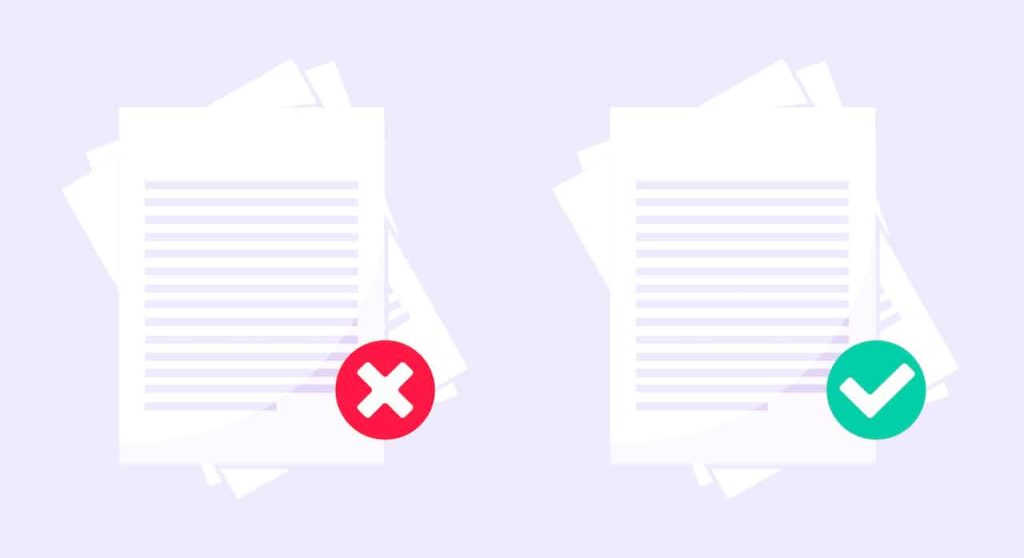Smart Spending Tips discusses why and how to fix credit report errors.
Credit report errors can lower a credit score, making it harder to open new lines of credit and causing credit terms to be more expensive. Some mistakes can be easy to spot and fix, and others can take more work. Either way, fixing them can help you improve your credit score and in the long run, save money.
How credit scores are calculated
Information on credit reports is collected by three nationwide consumer reporting agencies — Equifax, TransUnion, and Experian — and used to calculate credit scores. Each agency, also called a credit bureau, uses its own scoring model, and not all lenders and creditors report to all three agencies.
You don’t just have one credit score, but many, depending on which reporting agencies are collecting data on you from creditors. Factors that all of them usually consider are:
- Payment history
- Credit utilization rate
- Credit age
- Credit mix
- Amount you owe
- Hard inquiries
How to get your credit reports
During the Covid-19 pandemic, the three major credit bureaus are offering free weekly online credit reports through AnnualCreditReport.com. Each report is usually available for free once a year.
Why you should check for credit report errors
Credit report errors can lower credit scores and make it difficult to get approved for new credit. While raising your credit score is a good reason to check your reports for errors, other reasons to check them include:
- To assess credit status before taking out a loan for a large ticket item, such as a house or car.
- Before applying for a new job, as many companies look at your credit history when hiring.
- To ensure you have not been the victim of identity theft.
Thieves may use your information to open a new credit card account in your name. The delinquent account is reported on your credit report if and when they don’t pay the credit card bills. This can lead to calls from bill collectors, a falling credit score, and difficulty in getting credit in the future.
Check your personal information
Start your review of your credit reports by looking for inaccurate personal information. Identity thieves may use a slight variation of your name to open accounts in your name and commit other types of fraud. Check for identity errors such as:
- Wrong or misspelled name.
- Wrong or slightly changed phone number.
- Wrong or altered address.
- Wrong or changed birthdate.
- Incorrect Social Security number.
- Wrong employer information.
- Accounts held by someone with a similar name to you.
The last item is called a mixed file. It’s when accounts belonging to another person with the same or similar name as yours are mistakenly listed on your credit reports.
These errors are hopefully easy to fix and may help your credit score rise a little in a month or so.
Account errors
Errors on your credit accounts aren’t as easy to fix as personal data errors are, but they should be fixable if you can prove you made the payment on time, for example. Common account errors to check for include:
- Accounts incorrectly reported as late or delinquent.
- Incorrect date of last payment, date opened, or date of first delinquency.
- Closed accounts reported as open.
- Same debt listed more than once.
- You’re reported as the owner of an account, when you’re just an authorized user.
- Accounts with incorrect current balance.
- Accounts with incorrect credit limit.
- Accounts appear multiple times with different creditors listed.
On-time payments account for up to 35% of a credit score, so fixing a late payment error can significantly impact your scores. Late payments generally remain on credit reports for up to seven years, so fixing an error can have long-term consequences.
Disputing errors
You may have to contact both the credit reporting company and the company that provided the information to the credit reporting company. The company that provided the information is also called the “information furnisher” and can be a bank, lender or other business that provides you credit.
The same documentation can be submitted to both companies to prove your side of the story. The Consumer Financial Protection Bureau has information on how to dispute an error to a credit reporting company, and to an information furnisher.
Letters can include such information as:
- Account number or other information to identify account.
- Source of dispute information, such as the bank.
- Type of dispute information, such as unknown credit information.
- Dates associated with item being disputed.
- Explanation of item being disputed.
Multiple disputes can be listed in each letter and ideally include as much information as you have on the details of each dispute. You should also include a copy of your credit report or other supporting documentation highlighting the accounts in question.
Check your credit reports again
Once you’ve checked the three main credit reports and have asked the agencies to fix the errors, you should check your credit reports again in a few months to see if the errors have been removed.
Sometimes credit bureaus reinsert incorrect information after it was corrected. If the company says it fixed the items you disputed, but it’s still on your report a month or so later, then you may need to contact them again.
If you found Fix Credit Report Errors to Improve Your Credit Score useful, you may be interested in:
Disclaimer: The article and information provided here is for informational purposes only and is not intended as a substitute for professional advice.
Read the full article here

